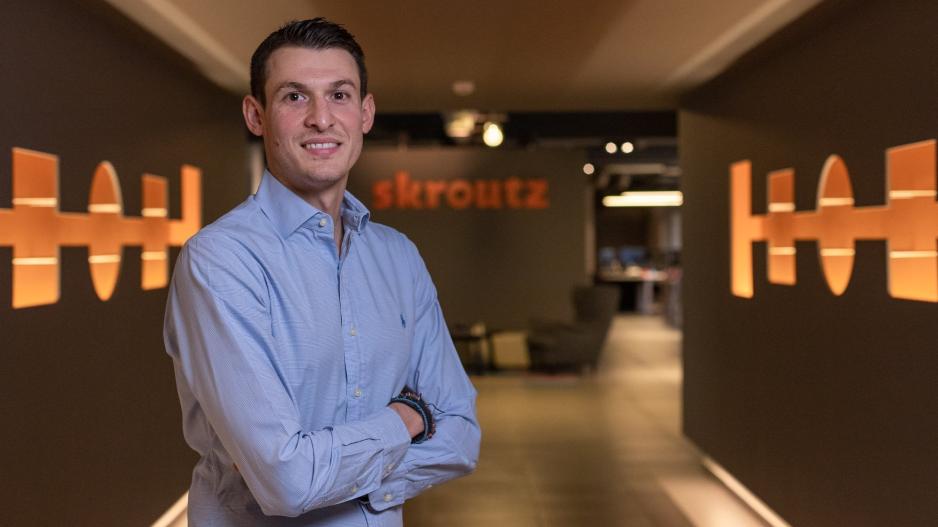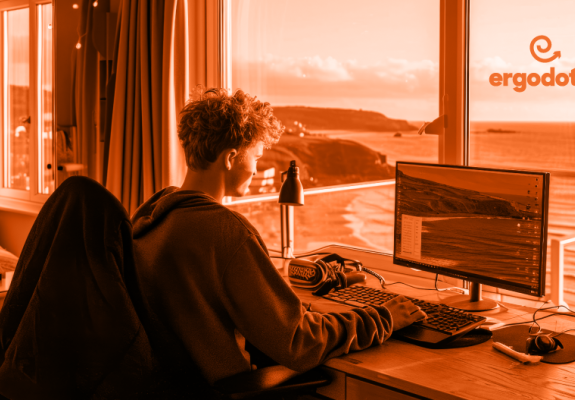Kostas Kontogiannis Discusses Skroutz’s Journey From Startup to Market Leader
An Interview With the CFO of Skroutz: Exploring the Vision, Challenges, and Future Plans of Greece’s Top Online Marketplace
In an exclusive interview, we delve into the remarkable journey of Skroutz, Greece’s premier e-commerce platform, with CFO Kostas Kontogiannis. From its humble beginnings as a price comparison engine in 2005, Skroutz has evolved into a powerhouse marketplace. Mr. Kontogiannis shares the key ingredients that fueled this success, the challenges and opportunities in today’s e-commerce landscape, and Skroutz's strategic moves to maintain its market leadership.
The conversation also touches on the nuances of operating in Cyprus, the motivations behind sponsoring the Reflect Festival, and a sneak peek into upcoming initiatives aimed at further enhancing the Skroutz shopping experience.
Skroutz started as a price comparison engine in 2005. Today Skroutz is well established in the minds of consumers as the go-to marketplace when in search of an exceptional shopping experience. We are the most popular e-commerce platform in Greece, where consumers can find more than 31 million products from more than 8.000 merchants.
Our mission is to create an extraordinary shopping experience for our customers and a powerful sales platform for our partners. Every decision we make has the same denominator, being how we can accommodate the needs of our users and offer solutions. With that in mind, we developed services like express delivery, our automated delivery system via lockers, Skroutz points, we ensured secure electronic payments and we focused on delivering exceptional customer service by building our own courier service.
Navigating global supply chain issues is a difficult task these days. Disruptions from events like COVID-19 pandemic, geopolitical tensions and natural disasters make it nearly impossible to plan ahead, whether it’s for the next two to three years or even the next six to 12 months. On top of that, consumers now demand faster delivery and seamless shopping experience, pushing business to invest heavily in logistics and technology. The new e-commerce landscape, that we are all part of, with trends like social shopping and emerging competitors outside of traditional platforms requires constant adjustments in strategy. The new era of e-commerce requires evolution. Not to forget to add to the mix, the growing consumer demand for sustainability and ethical shopping options, making it clear that businesses should prioritize environmental concerns in order to stay relevant.
At the opportunities front, in today’s fast paced world people consume content on-the-go, whether they want to get inspired, informed, entertained. The increasing mobile usage from users, shaped our strategy, with Skroutz aiming to become the Everyday App and the go-to -destination for users to fulfill their shopping needs. Not only that but to make the shopping experience even smoother, we meet one of the biggest needs of users, offering alternative pick up and delivery options, like Skroutz Point offering flexibility and convenience since it takes away the “pain” of waiting for home deliveries. A service that will be offered for the Cypriot market in the near future.
At Skroutz we are all about enhancing customer engagement and personalized content. Social shopping being one of the biggest trends, we built a trusted community in which users share tips, knowledge, and exchange ideas. Last but not least, providing flexible payment options is a necessity and one of the most important consumer asks. We understand that higher prices can affect spending and that was a huge opportunity for us, so as to build our consumer financing program, aiming to help users have an enjoyable and easy shopping experience.
Operating in Cyprus influences our financial strategies due to the unique advantages and challenges the market presents. The consumer behavior in Cyprus is very similar to that in Greece, which allows us to implement strategies that have already proven successful. This reduces the risk and initial investment required for market entry.
However, logistical challenges, such as fulfilling orders via plane or ship, necessitate careful cost management and contingency planning to ensure efficiency and reliability. Despite these challenges, the minimal language barrier and cultural similarities enable us to execute marketing and customer service strategies more effectively and at a lower cost.
Overall, Cyprus serves as a strategic testing ground where we can refine our financial strategies, optimize operational efficiencies, and gather insights that will be invaluable for our future expansions into other regions. This approach helps us ensure sustainable growth while maximizing our return on investment.
As a leading e-commerce platform in Greece, Skroutz aims to align itself with innovative and forward-thinking events that reflect its own values of technology, innovation, and customer-centricity. Through its participation, Skroutz hopes to inspire and foster a culture of innovation as well as engage with innovative minds that can spark new ideas and collaborations.
We will be discussing our efforts to own the user experience end to end. How we scale through listening and anticipating our customers’ needs. We will paint the picture of how the Skroutz ecosystem looks like, and the reasons behind each strategic decision we made. From the acquisition of our payment service to the personalisation of the content on our platform.
We will be introducing Skroutz Points, enhancing the pick-up and drop-off options for our customers. The lockers will be installed to serve Cypriots online consumers, who prefer locker deliveries at their convenience over home delivery. Additionally, we will launch a version of our loyalty program Skroutz Plus, to reward our loyal customers with exclusive deals. Skroutz Plus has been a significant growth driver in Greece and we want to replicate this success in Cyprus.






